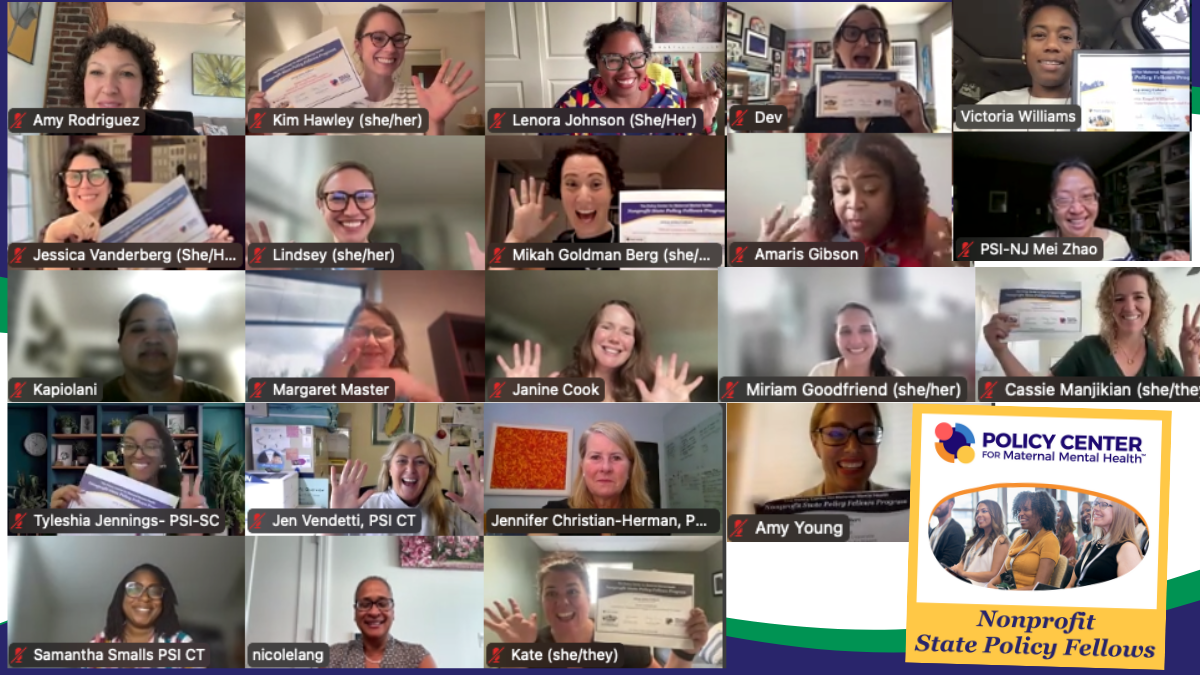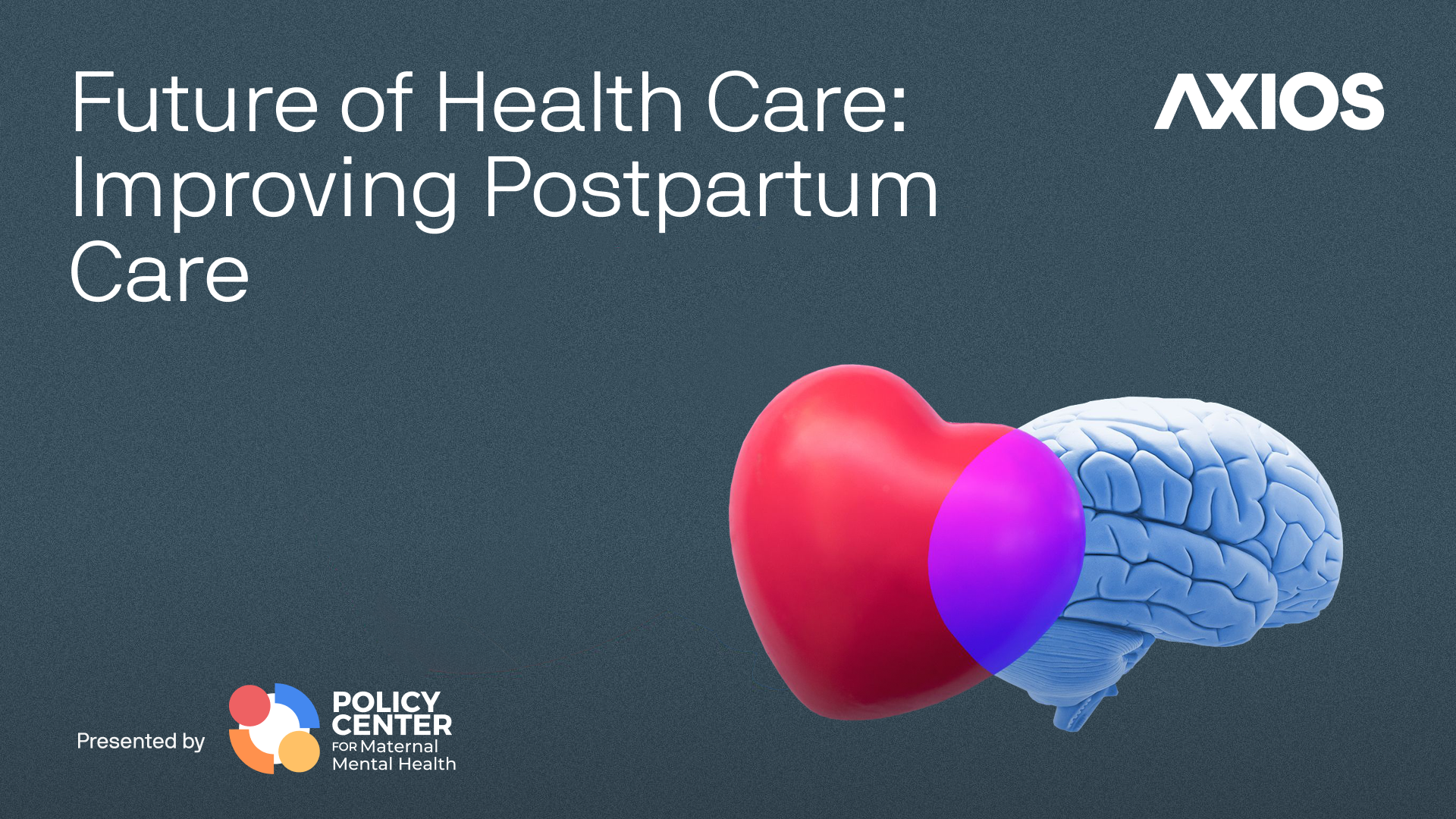This year, the Policy Center ran our fifth Nonprofit State Policy Fellows program. The program assists backbone organizations in developing a foundation for regulatory and statutory policy change to close gaps in maternal mental health in their states. Last week our Nonprofit State Policy Fellows graduated from the 12-month program and presented their action plans to staff, board members, and guests.
This cohort had 31 graduates representing 13 states including CA, CT, GA, KY, LA, MD, MO, NE, NJ, OR, SC, TN and VT. Below are a few examples of their plans.
Connecticut
Our Connecticut fellows focused on building a lasting policy framework to support maternal mental health. They established an annual Maternal Mental Health Day, developed a comprehensive state impact report and action plan, and successfully advocated for the inclusion of a maternal mental health task force in state legislation. As a result of this work, Connecticut’s policy grade on the Policy Center’s national report card improved from a D to a projected B+, signaling a transformative shift in the state’s commitment to maternal mental health.
Georgia
In Georgia, our fellows championed both legislative and community-based efforts. They drafted a bill proposing universal prenatal mental health screening and convened a Perinatal Mental Health Task Force that brought together diverse stakeholders across the state. While the bill advanced through the House Health Committee before stalling in the Rules Committee, the work laid a strong foundation for continued progress. They are also developing resource guides and exploring peer support specialist certification to expand the reach and sustainability of maternal mental health care.
Oregon
Oregon’s fellows stood out for their community-rooted and equity-centered approach. Two teams, the Micronesian Islander Community (MIC) and Postpartum Support International (PSI) Oregon, pursued distinct but complementary strategies. MIC focused on conducting culturally grounded community conversations, joining state committees, and securing funding to support prenatal and early childhood initiatives. Meanwhile, PSI Oregon pushed forward housing protection legislation, advocated for expanding traditional health worker roles, and worked to improve screening rates statewide. Both teams are actively engaging with the Health Evidence Review Commission to influence Medicaid policy, ensuring that maternal mental health care is equitable and inclusive.
Tennessee
Our Tennessee fellows confronted staggering access gaps, with 70% of the state’s counties classified as “maternal mental health dark zones.” In response, they set ambitious goals to increase care access by 40% by 2027, reduce postpartum depression by 25%, and double the number of peer support groups in rural and BIPOC communities. Drawing on their experience with the National Maternal Mental Health Hotline, they are bringing both urgency and innovation to maternal mental health policy and practice across the state.
Learn more about our Nonprofit State Policy Fellows program here.



